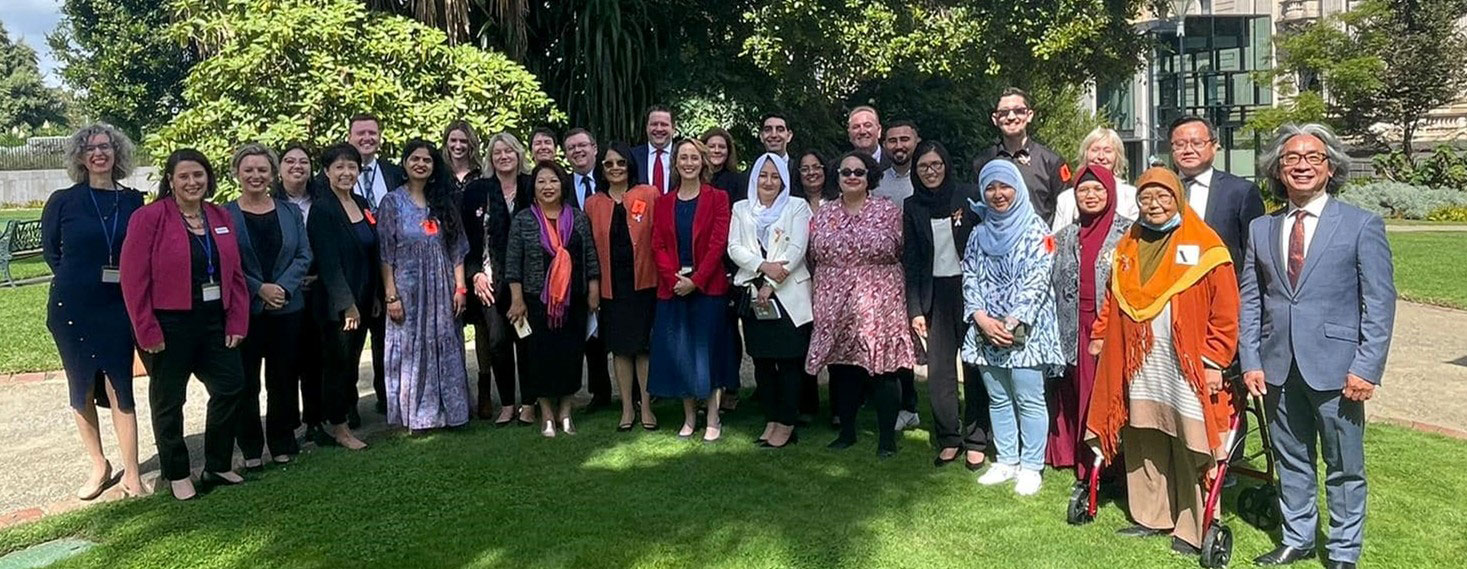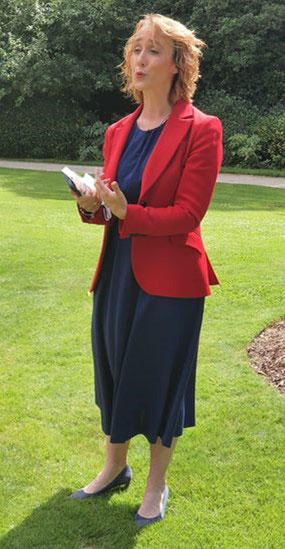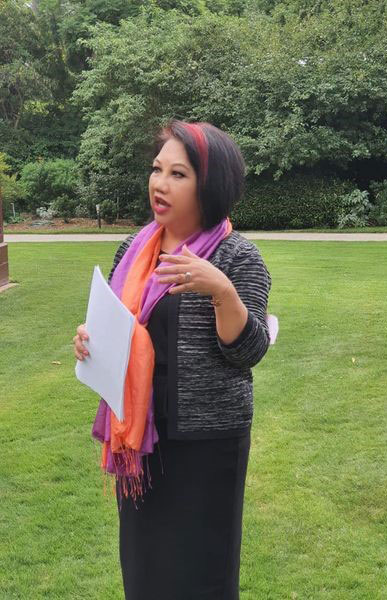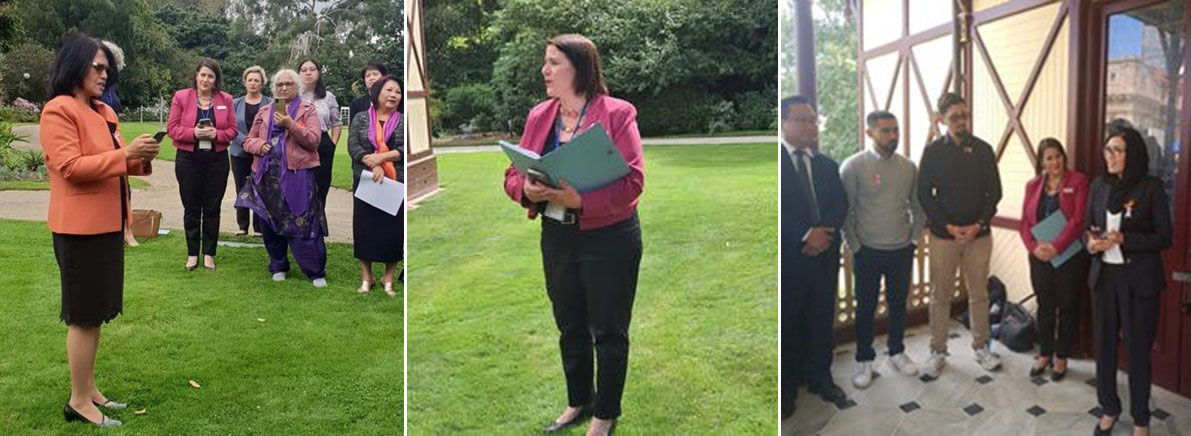PR-13-2022
23 March 2022
PH Consul General Joins Multicultural Leaders and MPs on Family Violence Reforms

|
Clockwise from top: Community leaders of Asian, African and Middle Eastern backgrounds meet MPs on family violence reforms; Minister for Women and Preventing Family Violence Gabrielle Williams; Melba Marginson of TSWN.
In opening the meeting between multicultural leaders with Members of the Parliament (MPs) on 23 March 2022, Consul Maria Lourdes Salcedo said that the first draft of the UN Convention on the Elimination of All Forms of Discrimination Against Women was submitted by the Philippine representative, former Leticia Ramos-Shahani, at the Commission on the Status of Women in New York in the 1970s. The meeting was jointly organized by Melbourne PCG with Filipino leader Melba Marginson of The Silent Witness Network following a collaboration in December for the Campaign to End Violence Against Women. Fifteen MPs led by MP Juliana Addison, leader of the Women Caucus Group, and MP Gabrielle Williams, Minister for Women and Prevention of Family Violence got together at the beautiful Parliament Gardens. Minister Gabrielle Williams recounted the accomplishments of the government, in particular the Royal Commission Inquiry into Family Violence in 2015 where 204 of the 227 recommendations have so far been implemented to reduce the impact of family violence in communities. |
  |

Clockwise from top: Community leaders of Asian, African and Middle Eastern backgrounds meet MPs on family violence reforms; Minister for Women and Preventing Family Violence Gabrielle Williams; Melba Marginson of TSWN.
Minister Williams admitted that putting a tick on each of those 227 recommendations is not enough and that “much more needs to be done,” she said. She also announced an extra AU$3 million over three years as support for Our Watch, the national foundation for the prevention of violence against women and their children.
To celebrate and reflect on the impact of family violence reforms, Ms. Marginson gave a brief history of the advocacy from a multicultural lens. She said that the Filipino-led campaign in 1989 and throughout the 1990s scandalized the Australian government due to 18 murders and disappearances of Filipino women and children during that period. The campaign led to the 1995 amendments on domestic violence provisions to the 1975 Commonwealth Family Law Act, which shifted Australian public attitude about the problem.
In 1996, a two-day conference titled “Not the Same” looked at strategies to address domestic violence and sexual assault for non-English speaking women. The initiative provided funding to service providers but not grassroots groups. Nonetheless, a Filipino-led group was able to develop a Women’s Leadership Course given to 2,000 community-based women. True to her advocacy, Ms. Marginson also contributed to the 2015 Royal Commission Inquiry into Family Violence.
The group called for more collaboration with community leaders at the grassroots level rather than them vying for a small slice from service providers. END

